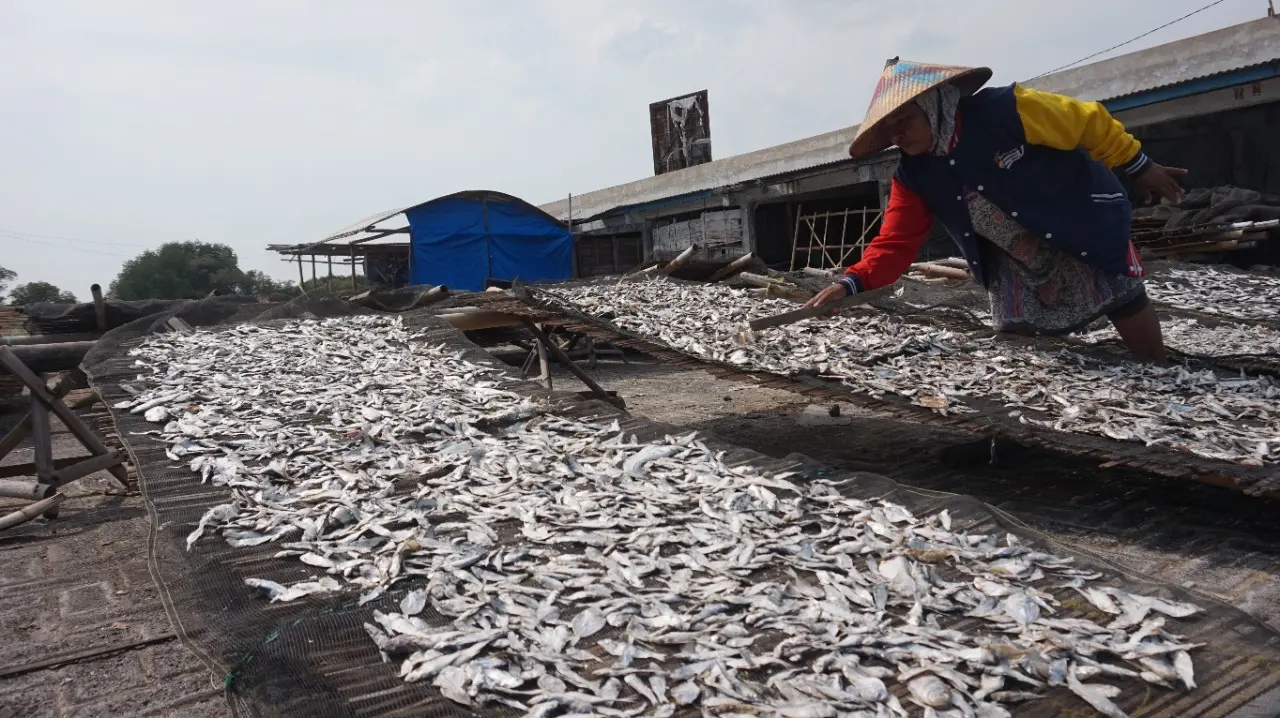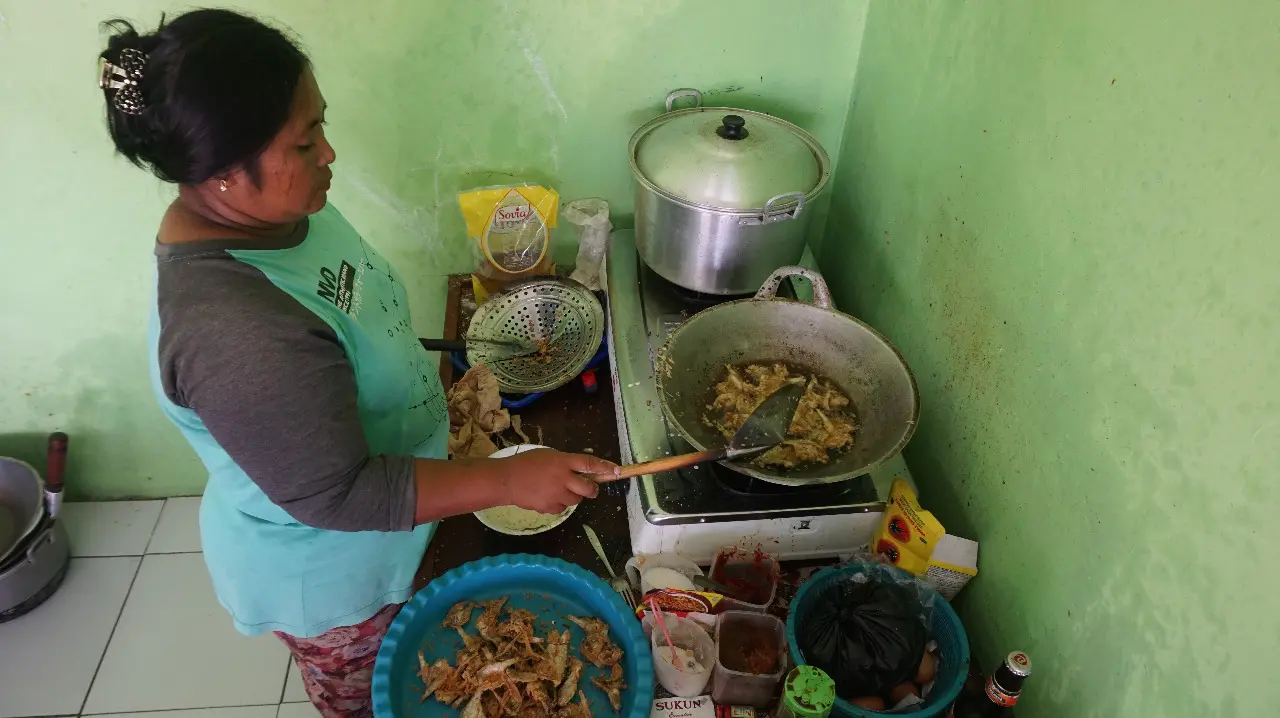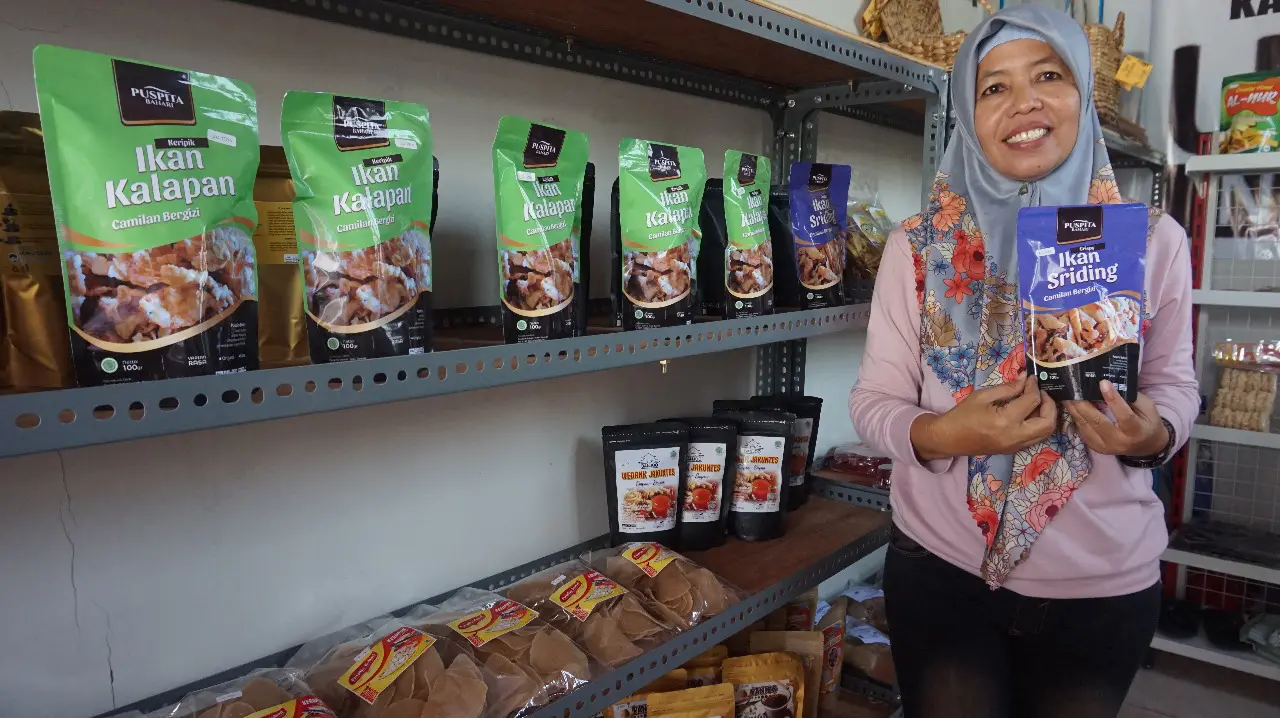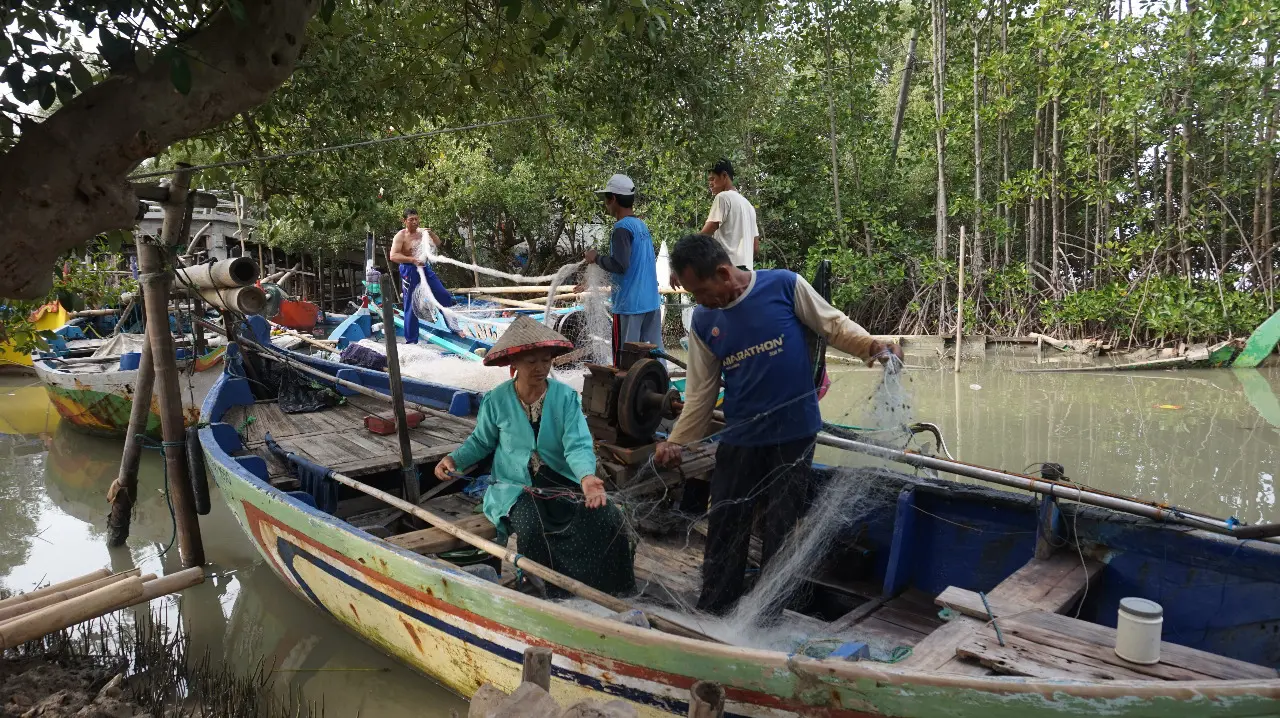In the past, coastal women in Demak, Central Java, Indonesia, lived in marginalized communities, struck by the strong patriarchal culture prevalent, the lack of access to information, and the low level of education. There are not many opportunities for adult women until they marry and start a family.

Most of the women in coastal communities were simply waiting for their husband’s catch. However, because of the unpredictable catches, it is difficult for fishermen’s wives to save, and as a result, many of their children drop out of school. Domestic violence is frequently exacerbated by unstable economic situations.

As a nonprofit journalism organization, we depend on your support to fund more than 170 reporting projects every year on critical global and local issues. Donate any amount today to become a Pulitzer Center Champion and receive exclusive benefits!

Seeing the inequality that occurred, Masnuah, one of the coastal women in Demak, Indonesia, rebelled and was determined to improve the lives of women on the coast. She founded the Puspita Bahari Fisherwomen's Community. This community is a forum for the economic empowerment of fisherwomen and fishermen’s wives. It also campaigns for equality and justice.
She gathered the spouses of the fishermen and fisherwomen to organize alternative economic activities to boost coastal women’s independence. The coastal women were empowered and taught to process cheap fish into fish crackers, fish chips, shredded meat, beef jerky, and shrimp paste.

Economic empowerment has allowed fishermen’s wives and fisherwomen to earn money by selling processed fish products. They can support the family’s economy, especially if their husbands or the fisherwomen themselves are unable to go to the sea due to high waves.










